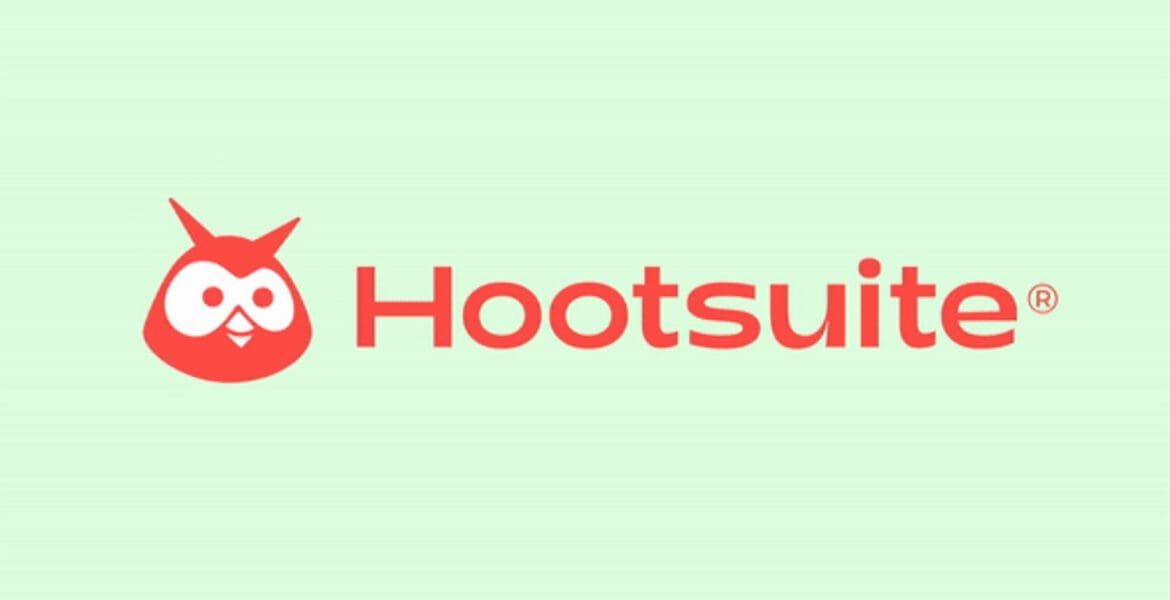In the dynamic world of social media, where every like, share, and comment counts, choosing the right tool to manage your digital presence can be a game-changer. With a myriad of options out there, it’s easy to get overwhelmed. Today, we’re diving deep into a comparison that matters: Hootsuite vs Zoho Social. Both are giants in the realm of social media management, but which one is the perfect fit for you? Whether you’re a small business owner, a social media manager, or just curious about optimizing your online interaction, this article is your compass in the vast sea of social media tools. Let’s find out which tool can make your social media journey not just successful, but also a breeze.
| Hootsuite | Zoho social |
|---|---|
 |  |
| G2 Score – 4.2 out of 5 stars | G2 Score – 4.6 out of 5 stars |
| TrustRadius Score – 8.2 out 10 stars | TrustRadius Score – 9.2 out of 10 stars |
Area of Comparison: User Interface and Ease of Use
When it comes to managing social media, the user interface (UI) and ease of use of a tool can make or break your experience. It’s like choosing a car; you want one that’s not only powerful but also comfortable and easy to navigate. Let’s buckle up and take a closer look at Hootsuite and Zoho Social through this lens.
Hootsuite: The Veteran’s Playground
Hootsuite has been around for a while, and its experience shows in its comprehensive dashboard. When you first log in, you’re greeted with a plethora of options. There’s a dashboard for monitoring your feeds, a section for scheduling posts, and analytics to track your performance.
The strength of Hootsuite lies in its versatility. You can monitor multiple social media platforms, respond to messages, and even track what people are saying about your brand, all from one place. It’s like having a Swiss Army knife for social media; it has a tool for every need.
However, this versatility comes with a complexity that might be overwhelming for beginners. The interface is packed with tabs and menus, which can feel like walking through a maze for the uninitiated. It’s a powerful tool, but it requires a bit of a learning curve to navigate efficiently.
Zoho Social: Simplicity Meets Efficiency
Enter Zoho Social, and you’ll notice a stark contrast. Zoho Social prides itself on its clean, intuitive interface. It’s designed with simplicity in mind, making it a great fit for those who are new to social media management or prefer a more straightforward approach.
With Zoho Social, the main functions like scheduling posts, monitoring engagement, and accessing analytics are all just a click away from the dashboard. It’s akin to driving a smart car that’s designed for ease of use; everything is where you expect it to be, and there’s no need to fumble through complicated menus.
This simplicity doesn’t mean it lacks power. Zoho Social is quite adept at handling the essentials of social media management. The trade-off, however, is that it might not have as many advanced features as Hootsuite. Think of it as a streamlined vehicle that’s perfect for city driving but might not have all the functionalities of an all-terrain SUV.
The Verdict on UI and Ease of Use
Choosing between Hootsuite and Zoho Social, in terms of UI and ease of use, depends largely on your proficiency and what you’re looking for in a social media tool. If you’re a seasoned social media professional looking for a tool that packs a punch with features, Hootsuite might be your go-to. On the other hand, if you value simplicity and an intuitive experience, Zoho Social could be your best bet.
The decision is akin to choosing between a feature-packed yet complex professional camera and a user-friendly point-and-shoot camera. Both have their places, and the best choice depends on the user’s skills and needs.

I am reaching out regarding your request for a query related to first-person reviews of two social media management tools that you use for two different purposes. With over 20 years of experience in digital marketing, I have always been encouraged to use social media management tools for effective results.
Here’s a response to your Query: As the CEO of Digital Web Solutions, we use social media management tools to support our digital marketing strategy. We manage our social media presence efficiently and deliver exceptional services that give good results to our clients.
Hootsuite for Client Social Media Management: We use Hootsuite to manage our clients’ social media accounts. We at Digital Web Solutions use Hootsuite to schedule posts, analyze performance, and manage all our social media accounts in one place. This tool helps us plan content and engage with our audience more efficiently.
Zoho Social for Our Internal Social Media Management: For Digital Web Solution’s social media presence, we use Zoho Social. We use Zoho Social to track social media leads and engagements directly within our CRM. Zoho Social’s SmartQ feature, which suggests optimal posting times based on audience activity, stands out as its best feature, helping us maximize engagement with our content and attract more visitors.
The two tools help in social media management to the specific needs of our clients and our brand. We have no plans to switch tools as this combination effectively meets our needs.
Vaibhav Kakkar, CEO of Digital Web Solutions
Area of Comparison: Integration and Compatibility
In the world of social media management, integration with various platforms and compatibility with different tools are like the gears of a well-oiled machine. They determine how smoothly and efficiently you can navigate through different tasks. Let’s explore how Hootsuite and Zoho Social fare in this crucial aspect.
Hootsuite: A Hub of Integrations
Hootsuite is often praised for its wide range of integrations. Imagine it as a universal remote control that can operate almost every device in your home. It connects seamlessly with a vast array of social media platforms, including popular ones like Facebook, Twitter, Instagram, LinkedIn, and Pinterest, as well as niche platforms. This broad spectrum makes it an ideal tool for businesses and individuals who are active across multiple platforms and need a centralized control panel.
Apart from social media platforms, Hootsuite also integrates with various third-party applications and services. This includes CRM tools, content management systems, and even analytics services. These integrations allow for a more comprehensive approach to social media management, where everything from post-scheduling to customer relationship management can be handled within a single ecosystem.
Zoho Social: Focused and Streamlined Compatibility
Zoho Social takes a more focused approach to integration. It covers all the major social media platforms, ensuring that you can manage your presence on the networks that matter most. Think of Zoho Social as a specialized tool in your toolkit, designed to work perfectly with the essentials.
One of the highlights of Zoho Social is its integration with the Zoho Suite. If you’re already using other Zoho products for your business, Zoho Social blends in seamlessly, creating a unified workflow. This compatibility is particularly beneficial for businesses that rely on the Zoho ecosystem for their operations, as it ensures that all tools work in harmony, much like instruments in an orchestra.
Additionally, Zoho Social’s integration with Google My Business stands out. This feature is a boon for local businesses looking to enhance their visibility and engagement on Google’s platforms. It’s like having a direct line to your local audience, enabling you to manage your presence effectively on a platform that often serves as the first point of contact with potential customers.
The Verdict on Integration and Compatibility
In terms of integration and compatibility, Hootsuite is the clear winner for those who require a wide range of functionalities and wish to connect with a plethora of platforms and third-party applications. It’s ideal for those who want a comprehensive tool that can handle diverse tasks.
On the other hand, Zoho Social is the go-to for users who prefer a more streamlined tool that integrates well with the Zoho ecosystem and offers specific functionalities, like Google My Business integration, which are crucial for certain businesses.
The choice between Hootsuite and Zoho Social in this area is akin to choosing between a multi-purpose gaming console with extensive game options and a specialized gaming device that offers a curated, high-quality gaming experience. Both serve different types of gamers and cater to different needs.

Related: Check out our free SEO suite

Area of Comparison: Analytics and Reporting
In the realm of social media, analytics and reporting are like the compass and map for a navigator. They guide your strategy, show you where you’re succeeding, and reveal areas for improvement. Let’s delve into how Hootsuite and Zoho Social equip you with these essential tools.
Hootsuite: The Data-Driven Navigator
Hootsuite’s analytics are robust and comprehensive, providing a deep dive into the performance of your social media campaigns. Imagine being in a high-tech control room with screens displaying various data points. That’s what Hootsuite offers. You get detailed reports on engagement metrics, such as likes, shares, comments, and more, across all platforms.
One of the standout features of Hootsuite’s analytics is its customizability. You can create tailored reports that focus on the metrics that matter most to you. This is particularly useful for businesses with specific KPIs (Key Performance Indicators) or for social media managers who need to report to stakeholders with diverse interests.
However, this level of detail and customization can be overwhelming for some users. There’s a wealth of data available, and sifting through it requires a certain level of expertise and time. It’s like having a sophisticated scientific instrument; powerful, but requiring skill to use effectively.
Zoho Social: Streamlined and User-Friendly Insights
Zoho Social takes a more streamlined approach to analytics. It’s like having a smart assistant that presents you with a concise summary of your social media performance. The platform offers a clear overview of key metrics such as reach, engagement, and follower demographics.
What makes Zoho Social stand out is its user-friendly approach to data. The analytics are presented in an easy-to-understand format, making it accessible even to those who are not data experts. This is especially beneficial for small business owners or solo entrepreneurs who need quick insights without getting bogged down in complex data analysis.
Zoho Social also offers reporting features that allow you to create visually appealing reports. These reports are not only informative but also presentable, ideal for sharing with team members or clients who may not be well-versed in reading complex data charts.
The Verdict on Analytics and Reporting
In the battle of analytics and reporting, Hootsuite is the champion for those who crave detailed, customizable data. It’s suited for larger teams or businesses where data-driven decision-making is key.
Zoho Social, on the other hand, is perfect for users who need a straightforward, easy-to-digest overview of their social media performance. It’s ideal for smaller teams or individuals who want to quickly understand their impact without delving too deep into analytics.
Choosing between Hootsuite and Zoho Social for analytics and reporting is like choosing between a high-end DSLR camera with a multitude of settings and a point-and-shoot camera that offers quality images with minimal fuss. Both serve different purposes and cater to different users’ preferences.
Area of Comparison: Pricing and Plans
| Hootsuite | Free Plan: Hootsuite offers a limited free plan that allows for 2 social profiles and 5 scheduled messages. Professional Plan: Starting at $49 per month, this plan allows for 1 user, 10 social profiles, and unlimited scheduling. Team Plan: Starting at $129 per month, offering 3 users, 20 social profiles, and unlimited scheduling, plus additional team collaboration features. Business Plan: Starting at $599 per month for up to 5 users and 35 social profiles, with advanced features for larger teams. Enterprise Plan: Custom pricing for organizations with large-scale requirements, offering unlimited users, social profiles, and advanced features. |
| Zoho Social | Standard Plan: Starting at $10 per month (billed annually) for 1 brand (7 channels) and 2 team members, including basic publishing and monitoring features. Professional Plan: At $30 per month (billed annually), adding more advanced features like the bulk scheduler and custom reports for 1 brand. Premium Plan: Starting at $40 per month (billed annually), for 1 brand with additional features like ad integration and advanced analytics. Agency Plan: At $200 per month (billed annually), managing up to 10 brands, designed for agencies and larger teams. Agency Plus Plan: Starting at $300 per month (billed annually), with the capacity to manage up to 20 brands. |
When it comes to choosing a social media management tool, pricing and the variety of plans offered can be a deciding factor. It’s like looking for the right subscription service – you want the best value for your needs and budget. Let’s examine how Hootsuite and Zoho Social stack up in this crucial aspect.
Hootsuite: Flexible Plans for Diverse Needs
Hootsuite offers a range of pricing plans, catering to individuals, small businesses, and large enterprises alike. It’s like a restaurant with a menu that has something for everyone. You can start with a free plan, which is quite basic but a good way to get a feel for the platform. As your needs grow, there are several paid options that offer more features and capabilities.
The paid plans include Professional, Team, Business, and Enterprise. Each tier adds more features, such as additional social profiles, ad spend limits, and advanced analytics. The pricing can be on the higher side compared to other tools, especially as you move up the tiers. It’s a reflection of the depth and breadth of functionalities Hootsuite provides.
One important consideration is that Hootsuite’s pricing can quickly escalate as you add more team members or require access to more advanced features. This can be a consideration for smaller businesses or startups that are budget-conscious.
Zoho Social: Cost-Effective and Straightforward Pricing
Zoho Social, in contrast, offers a simpler and more budget-friendly pricing structure. Think of it as a cafe with a straightforward, value-for-money menu. The platform provides different plans, but overall, they tend to be more affordable than Hootsuite’s.
Their plans include Standard, Professional, and Premium, each catering to different sizes of businesses and feature needs. Zoho Social also offers a 15-day free trial, which allows you to test the waters before committing to a paid plan.
One of the appealing aspects of Zoho Social’s pricing is its transparency. There are no hidden costs, and the jump in price between different plans is reasonable. This makes it a great option for small to medium-sized businesses or individuals who need an effective tool without breaking the bank.
The Verdict on Pricing and Plans
In the arena of pricing and plans, your choice between Hootsuite and Zoho Social will depend on your budget and the scale of your operations. Hootsuite is like a high-end gym with a variety of specialized equipment – it’s great if you’re going to use all the facilities, but it comes at a premium.
Zoho Social, on the other hand, is akin to a community gym – it has all the essential equipment you need at a more affordable price. It’s ideal for those who want a no-frills, effective tool to manage their social media.
Ultimately, the decision boils down to a balance between the features you need and the budget you have. It’s important to weigh the cost against the potential return on investment each tool can offer for your specific social media strategy.
Conclusion
Choosing between Hootsuite and Zoho Social for your social media management is like picking the right companion for a journey. Both tools have their unique strengths and cater to different needs and preferences.
Hootsuite
Stands out as a robust, feature-rich platform ideal for seasoned social media professionals and larger organizations. Its extensive range of integrations, detailed analytics, and customizable reports make it a powerhouse for those who need deep insights and control over their social media strategy. However, this comes with a steeper learning curve and a higher price tag, making it more suitable for businesses that require a comprehensive tool and have the budget to support it.
Zoho Social
On the other hand, is a more user-friendly and cost-effective option. It’s perfect for small to medium-sized businesses, solo entrepreneurs, or those who are new to social media management. Its streamlined interface, straightforward analytics, and seamless integration with the Zoho ecosystem make it an attractive choice for those who value simplicity, efficiency, and affordability.






















Comments are closed.